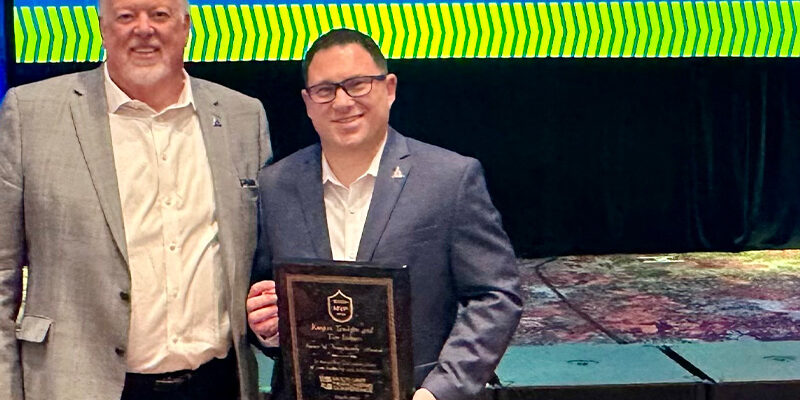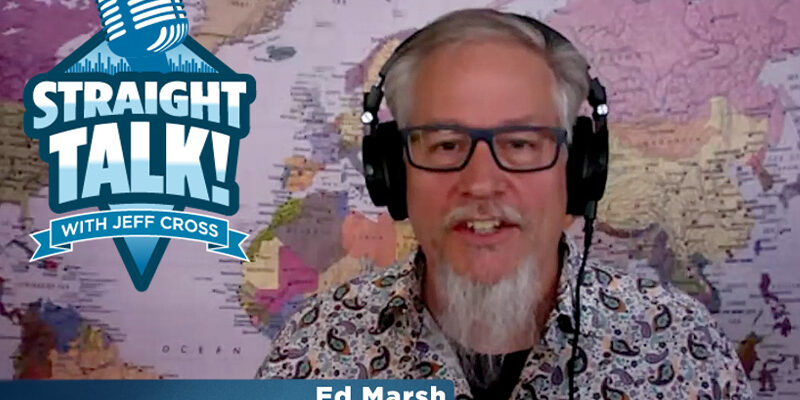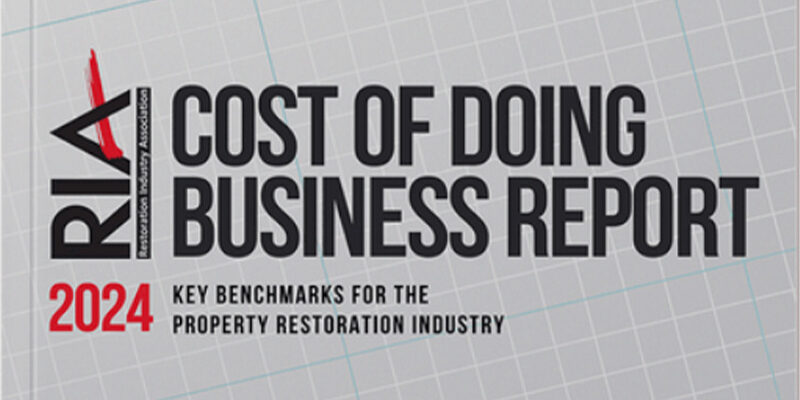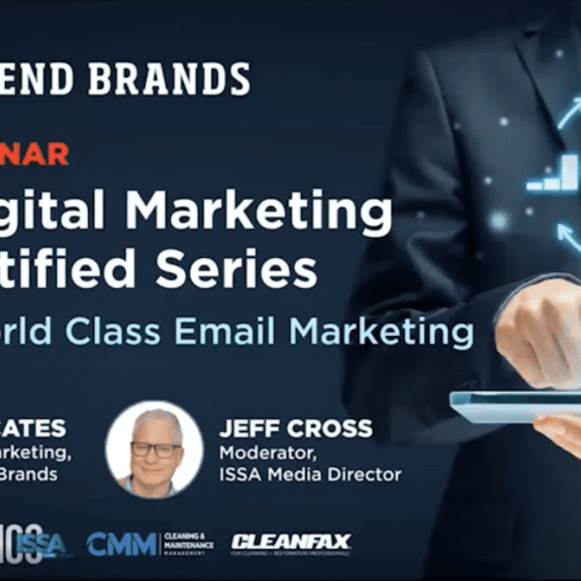Goals, Effort, and Results: Developing Excellence in Your Team

By Jon Isaacson
In a recent podcast conversation I had with Josh Zolin, he shared a thought-provoking question that I believe all leadership teams should consider: “Which is more important, effort or results?” Zolin is an advocate for helping young people recognize opportunities in the skilled trades, which is the impetus behind his book and podcast both by the same name, Blue is the New White.
As prominent as he has become as an author, podcast host, and speaker, he is also the owner of the rapidly growing WCE in Phoenix, Arizona where he is implementing the leadership challenge that he shared. In our podcast, we discussed the intersection between goals, effort, and results as you develop your team, which I hope to share with you in this article.
Developing new talent
“Superhuman effort isn’t worth a damn unless it achieves results.” —Ernest Shackleton
When our children were growing up, we were encouraged to applaud their effort as opposed to their results. For example, if they achieved a hat trick (3 goals) in a soccer game, we would say something like, “Your hard work in practice has been so awesome. Look how much that paid off today in the game.”
One of the critical dynamics in a family setting is unconditional love, which is why it’s oftentimes silly to hear people refer to their company as a family. The dynamics in a business are such that results are essential to the life of the organization. It isn’t enough to have people we like giving their best effort when we are not making any progress or seeing results; however, employees thrive where there is acceptance. In the realm of goals, effort, and results, this means there is an appropriate amount of room for team members to fail as they learn the skills necessary to thrive in your organization.
As Zolin pointed out in our conversation, effort is a key indicator of character. I have often said in my writing and podcast episodes that we look for people who are honest, hardworking, and willing to learn.
Honesty is non-negotiable, yet, if we want our people not to lie, we must be accountable for a culture that doesn’t punish people for realities of life such as honest mistakes. For example, a new hire can be working hard to do the right thing, think that they are making the right decision, and actually be completely wrong in their execution.
Is this not true of executive-level leaders and middle-managers as well? At the developmental stage, small honest mistakes are to be expected as this is where being willing to learn is critical to growth. The question becomes not whether an employee is perfect, but rather, “Can they learn from their mistakes and put their effort towards not repeating the same ones?”
Developing your culture
“The one requirement for success in our business lives is effort. Either you make the commitment to get results, or you don’t.” —Mark Cuban
While we might all agree that honesty and integrity are core values in our business as well as key characteristics that we look for in employees, we also have to be honest with ourselves with regards to what we reward in our businesses.
For example, several studies conducted by psychology professor Carol Dweck showed that “praising children for intelligence, rather than for effort, sapped their motivation,” and “turned them into liars.”
Some have used this paradigm to analyze the collapse of Enron, a company infamous for propping up its successes, lying about its results, and catastrophically failing. Believing they were special, many Enron executives chose to lie rather than face the reality of escalating internal issues or the work necessary to correct them.
It is important for people in a position of leadership to question whether what they believe, practice, and reward is leading their team down the right path to achieving their shared goals. Dweck found that focusing on intelligence as something innate creates a short-sighted approach to development as well as adaptation.
Enron was not just a few rogue employees; it was a whole culture that incubated its own demise. As Zolin and I discussed in the video, leaders and managers must consistently ask themselves—with brutal honesty—whether they have the right mindset and habits for success.
Below are some additional observations based on Dweck’s research:
- Rank-and-yank: Focusing too much on grading employees often leads to a lack of effort by the organization to develop talent.
- Creativity killers: “If you’re afraid of making mistakes, you’ll never learn on the job, and your whole approach becomes defensive, such as “˜I have to make sure I don’t screw up.'”
- Emotional intelligence (EQ): Management development usually requires those skilled in a craft to learn to manage others. Believing that EQ is also something that can be learned opens pathways for candidates to grow in these leadership areas.
Developing your team
“Success requires first expending ten units of effort to produce one unit of results. Your momentum will then produce ten units of results with each unit of effort.” —Charles J. Givens
What do you do when your team is underperforming?
As is discussed in my book, So, You Want To Be A Project Manager?, when there is a disconnect, we want to look beyond the effects and dig into what the sources are.
It’s easy to measure effort, but it is also easy to fake it or expend it on the wrong things. Results should be obvious, but those can be manipulated as well. In sports, we look at high performers and argue whether their talent is acquired at birth or produced through hard work. We treat leadership and success with these same confining metrics. Dweck studied an underperforming British soccer team to determine why players were neither putting in the necessary effort nor achieving the desired results. Her initial research supported her thesis:
- “People who attributed their failures to a lack of ability would become discouraged even in areas where they were capable.” Results impacted effort negatively.
- “Those who thought they simply hadn’t tried hard enough, on the other hand, would be fueled by setbacks.” Results impacted effort positively.
As an employee transitions into a realm where they understand the basic functions of the work and have formed their core abilities for being a productive member of the team, results become the primary metric. However, effort continues to be the primary function that the individual (as well as the organization) can control.
As an aspiring professional, you can control your effort even if you can’t always control the results. Similarly, as people in a position of leadership, we try to predict results, but we do not always control outcomes.
Effort intersects with results where data collection can be applied to real-world functions. For the employee that wants to grow their career and the organization that needs to meet their goals, effort and results are interconnected in the pursuit of success.
Developing your leadership approach
“The best results are achieved by using the right amount of effort in the right place at the right time. And this right amount is usually less than we think we need.” —Tony Buzan
When Dweck continued her research with the University of Illinois studying elementary students, they added a variable, asking the children to “think out loud.” In doing so, the research group discovered that how a person thought about their goals (desired outcomes) was a critical factor.
There was a significant change in results between the students who developed a mindset for “performance goals” verses those with “learning goals.” Her research unearthed a new field of educational psychology called achievement goal theory that I believe many organizational leaders will find helpful in their pursuit of developing excellence in their teams.
Performance goals mindset aka “˜Entity Theory’
- A person who wants to look smart even if it means not learning a thing in the process.
- Each task is a challenge to their self-image.
- Each setback becomes a personal threat.
- They pursue only activities at which they’re sure to shine—and avoid the sorts of experiences necessary to grow and flourish in any endeavor.
- They think intelligence is fixed from birth.
Learning goals mindset aka “˜Incremental Theory’
- A person who takes necessary risks.
- Doesn’t worry about failure because each mistake becomes a chance to learn.
- Loves a challenge.
- Has a growth mindset about intelligence, believing it can be developed.
While studying underperforming students, Dweck concluded, “The belief that you can’t improve stunts achievement.” We know we need hard work to learn new things and implement new initiatives, but we need to believe that we can improve before we will put the work in or see the results.
The hard work and willingness to learn won’t combine into something productive until those being encouraged to learn first believe that their efforts are worthwhile. As educators and business leaders, Dweck states, “If you target that belief, you can see more benefit than you have any reason to hope for.”
In my leadership role I need to be more intentional when assessing what is needed for personal and professional growth for myself, my team members, and our local contracting business. It has also been productive to have this discussion with our team members. We all want to build the company that we swore we would if we were ever given the chance, but sometimes, those ingrained habits paired with great effort and good intentions, can lead us away from the results that we aspire towards. This is why constant refinement and learning from experts like Zolin and Dweck is crucial to actualizing the success you dream of.
Jon Isaacson, known as the “Intentional Restorer,” is a contractor, an author, and the host of the DYOJO Podcast. Jon speaks, writes, and coaches start-up phase owners and growth-minded restoration professionals through his organization, The DYOJO. Isaacson is the author of the Be Intentional book series for restorers. Reach him at [email protected].












